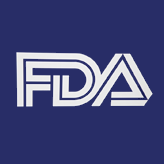Pelareorep Gets FDA Orphan Drug Nod for Ovarian Cancer
The US Food and Drug Administration has granted Orphan Drug Designation to pelareorep (Reolysin) for the treatment of ovarian cancer.
Pelareorep (Reolysin) is being tested in patients with ovarian epithelial, primary peritoneal, and fallopian tube carcinoma.

The US Food and Drug Administration (FDA) has granted Orphan Drug Designation to the oncolytic virus pelareorep (Reolysin) for the treatment of ovarian cancer.
The drug, developed by Oncolytics Biotech Inc, is currently being tested in a phase II trial.
“This is an important regulatory milestone for Oncolytics and will provide us with a number of benefits as we advance the development and commercialization process for Reolysin,” said Dr. Brad Thompson, president and CEO of the company, in a press release. “Ovarian cancer is a devastating disease that represents a significant unmet need, particularly for those patients diagnosed in later stages.”
Patients diagnosed with ovarian cancer at an early, localized stage have a 5-year survival rate of 92%, but about 85% of cases are diagnosed at a more advanced stage of the disease.
The initial phase I/II trial of pelareorep (OSU-07022) studied the drug for safety and tolerability, and to determine an optimal dose for treating patients with ovarian epithelial, primary peritoneal, or fallopian tube carcinoma that failed to respond to platinum-based chemotherapy. The drug was delivered via concurrent intravenous and intraperitoneal administration.
A randomized phase II trial of pelareorep (GOG186H), which completed enrollment in September 2014, is testing weekly paclitaxel with or without pelareorep in patients with persistent or recurrent ovarian, primary peritoneal, or fallopian tube carcinoma. The primary endpoint of the trial is progression-free survival; secondary endpoints are tumor response and overall survival.
The FDA grants Orphan Drug Designation to drugs or biologics with the potential to treat rare diseases-affecting fewer than 200,000 people-in the United States. The program offers incentives for companies to develop agents for these rare diseases.
About 193,203 women are currently living with ovarian cancer in the United States. In 2014, an estimated 21,908 American women were diagnosed with ovarian cancer, , according to the American Cancer Society, and an estimated 14,270 patients died of the disease. Among women, ovarian cancer accounts for roughly 5% of all cancer deaths each year.